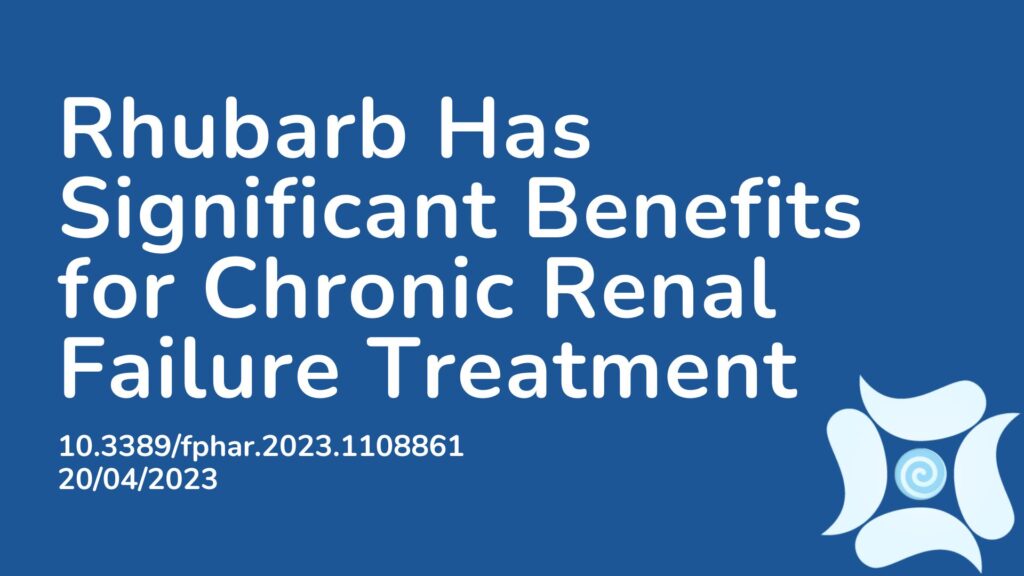Summary:
A 2023 meta-analysis published in Frontiers in Pharmacology examined 34 peer-reviewed studies involving 2,786 patients with chronic renal failure. The paper included 1,474 cases in the treatment group and 1,312 cases in the control group. By comparing various medical indicators between treatment and control groups, researchers discovered that rhubarb (derived from its dried roots and rhizomes) has therapeutic benefits for chronic renal failure. The overall effectiveness rate of rhubarb or traditional Chinese medicine (TCM) compounds containing rhubarb in alleviating symptoms of chronic renal failure was 4.14 times higher in the treatment group compared to the control group. This is because rhubarb can significantly reduce serum creatinine, blood urea nitrogen, and uric acid levels, and increases the creatinine clearance rate.
Abstract:
Objective: 1) To evaluate the effificacy of rhubarb in the treatment of chronic renal failure (CRF); 2) To explore the safety for rhubarb-based therapy on chronic renal failure. Methods: The randomized and semi randomized controlled trials of Rhubarb in the treatment of chronic renal failure in medical electronic databases (up to September 2021) were searched, and meta-analysis was carried out by revman 5.3 software. Results: A total of 2,786 patients were included in 34 literatures, including 1,474 cases in the treatment group and 1,312 cases in the control group. The results of meta-analysis showed that Serum creatinine (SCR) [MD = 123.57, 95% Cl (111.59, 131.96)], Blood urea nitrogen (BUN) [MD = −3.26, 95% Cl (−4.22,−2.31)], Creatinine clearance rate (CCR) [MD = 3.95, 95% Cl (−0.03, 7.93)], Hemoglobin (Hb) [MD = 7.70, 95% Cl (−0.18, 15.58)] and Uric acid (UA) [MD = −42.79, 95% CI (−66.29, −19.29)]. The total effective rate of improving symptoms and signs in chronic renal failure patients [Peto or = 4.14, 95% Cl (3.32, 5.16)]. Conclusion: This systematic review and meta-analysis demonstrated that rhubarb has a positive therapeutic effect, which may provide confifidence and some theoretical reference for clinical application to a certain extent. Compared with the control group, rhubarb alone or traditional Chinese medicine compound containing Rhubarb can significantly reduce Serum creatinine, Blood urea nitrogen and Uric acid, increase Creatinine clearance rate, and improve the total effective rate of symptoms and signs. However, there is no evidence that rhubarb is more effective than the control group in increasing hemoglobin. In addition, due to the low quality of research methodology in the included literature, it is necessary to further study high-quality literature to evaluate its efficacy and safety.
Article Publication Date: 20/04/2023
DOI: 10.3389/fphar.2023.1108861



